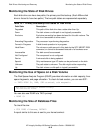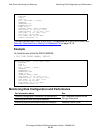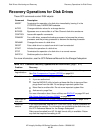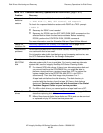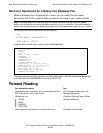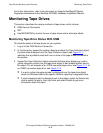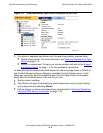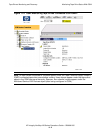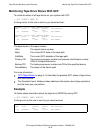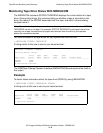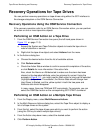
HP Integrity NonStop NS-Series Operations Guide—529869-005
11-1
11
Tape Drives: Monitoring and
Recovery
When to Use This Section on page 11-1
Overview of Tape Drives on page 11-1
Monitoring Tape Drives on page 11-2
Monitoring Tape Drive Status With OSM on page 11-2
Monitoring Tape Drive Status With SCF on page 11-5
Monitoring Tape Drive Status With MEDIACOM on page 11-6
Monitoring the Status of Labeled-Tape Operations on page 11-7
Identifying Tape Drive Problems on page 11-7
Recovery Operations for Tape Drives on page 11-8
Recovery Operations Using the OSM Service Connection on page 11-8
Recovery Operations Using SCF on page 11-9
Related Reading on page 11-9
When to Use This Section
This section provides an overview of operating, monitoring, and recovery operations for
tape drives attached to Integrity NonStop NS-series servers.
Overview of Tape Drives
A new generation of multimode fibre channel (MMF) peripherals is supported on
Integrity NonStop systems. Tape drives with an MMF interface are connected directly
to a fibre port on an FCSA in an IOAME or VIO enclosure. Some high voltage
differential (HVD) SCSI drives are also supported in the NS optical environment. These
drives are connected using an M8201 fibre channel to SCSI router. The M8201
converts the FCSA MMF connection into two SCSI buses. Currently, only optical port 0
is used on the M8201. The SCSI drives are connected using 68-pin to 68-pin HVD
SCSI cables. These cables have a high density connector for the M8201.
Most drives supported on NonStop S-series can be connected to an Integrity NonStop
NS16000 server through an IOMF2 in an IOMF enclosure. The drives can be
interfaced in the same manner that is supported in S-series, either through an SNDA or
a SCSI port on an IOMF2 board. OSM provides different views for drives that are
connected through an FCSA versus an IOMF2. See Monitoring Tape Drives
on
page 11-2.



